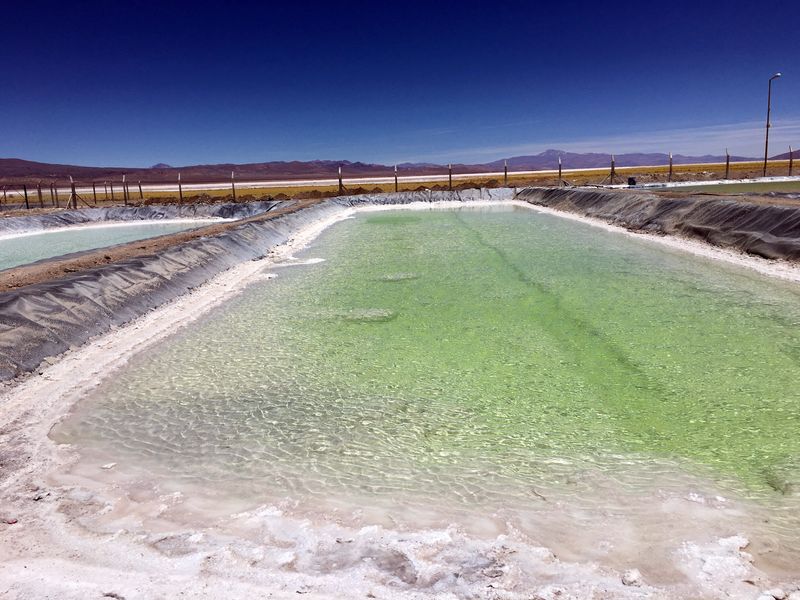MELBOURNE (Reuters) -Rio Tinto said on Wednesday it would acquire Arcadium Lithium for $6.7 billion, in an agreed all-cash deal that would make it one of the world’s largest lithium producers.
Rio said it would pay $5.85 per share for the U.S.-based lithium miner. That represents an almost 90% premium to Arcadium’s closing price of $3.08 per share on Oct. 3, the day before Reuters exclusively reported on a potential deal between the two firms.
Rio would gain access to lithium mines, processing facilities and deposits in Argentina, Australia, Canada and the United States to fuel decades of growth, as well as a customer base that includes automakers Tesla (NASDAQ:TSLA), BMW (ETR:BMWG) and General Motors (NYSE:GM).
Lithium prices have floundered due to Chinese oversupply and a slowdown in electric vehicle sales, resulting in miners of the metal emerging as attractive takeover targets.
“This is a counter-cyclical expansion aligned with our disciplined capital allocation framework, increasing our exposure to a high-growth, attractive market at the right point in the cycle,” Rio CEO Jakob Stausholm said in a statement.
The deal would make Rio one of the largest producers of the battery making metal alongside Albemarle (NYSE:ALB) and SQM.
Arcadium Chairman Peter Coleman said the cash offer would provide shareholders with “certainty and liquidity” and to avoid ongoing risks associated with lithium market fluctuations.
Arcadium shares have fallen more than 37% since the start of the year, giving it a market capitalisation of $4.56 billion.
Jason Beddow, managing director at Australian fund manager Argo Investments, which owns shares in Rio, said the deal made a lot of sense.
“Yes it’s a big premium but stocks have been sold off a lot,” he said.
Beddow, who visited the companies’ Canadian operations in recent weeks said: “They are both close together geographically, they both use Quebec hydropower. Rio has a strong chemicals business in Canada that this will slot into.”
The transaction, which has been unanimously approved by the companies’ boards, is expected to close in mid-2025.

